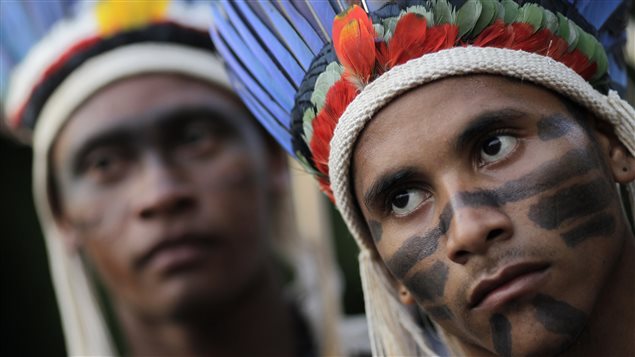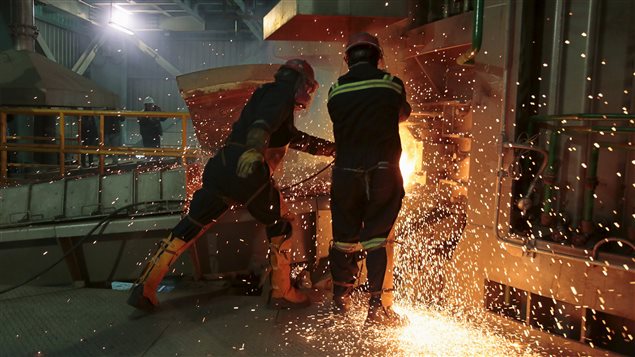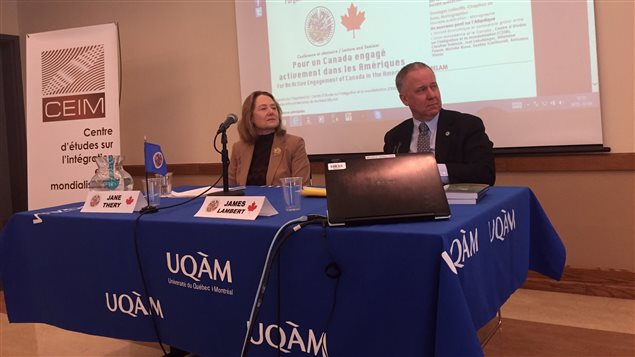As Canada marks the 25th anniversary of its accession to the Organization of American States, the new Liberal government needs to re-engage the hemisphere with the vision of a Pan American partnership, a group of experts is urging the federal government.
This group of academics, government officials, and diplomats came together in Montreal last week at a conference entitled “For An Active Engagement of Canada in the Americas,” which was organized at the French-language University of Montreal in Quebec, known under its French acronym UQAM.
One of the organizers of the conference, Victory Armony, an expert on Latin America and professor of sociology at UQAM, said they wanted to use the occasion of the 25th anniversary of Canada’s accession to the OAS and the fact there is a new government in Ottawa to discuss the past and, especially, the future of Canada’s engagement in the Americas.
“With a new government in place and the fact that there has been a lot said about the new approach to foreign affairs in Ottawa and this notion that ‘Canada is back,’ maybe to a certain extent going back to a different stance regarding some of the most important issues in world affairs,” said Armony, “we’re thinking that this new government in Ottawa could strengthen Canada’s place in the Americas and maybe to a certain extent reverse some of the things that have been done in the past decade, which in the view of many people have weakened its effective role and actions towards Latin America and the Caribbean.”
Policy based on Canadian values

Canada can be a very effective and powerful voice regarding the issues such as defence and the promotion of democracy, of human rights, social rights, rights of indigenous peoples, gender equality and protection of the environment, said Armony.
“And Canada has a place and a role, and a voice that can be heard,” said Armony. “Actually, Latin American governments are keen to listen to Canada.”
Canada doesn’t need to reinvent itself, he said.
“The image of Canada as an important player here in the Americas is there,” said Armony. “The fact is Canada needs to take that place again and lead on many issues as Canada has done in the past.”
Canada created the unit for promotion of democracy, Canada was instrumental in very important measures that were adopted by OAS member states in the 1990s regarding rights of communities and people, said Armony.
“We’re really hoping that this is a good time and good timing for the new presence of Canada in the context,” he said.
Lots of talk but no action

In 2007, the Conservative government of Stephen Harper launched Canada’s Strategy for Engagement in the Americas. It was a broad initiative which was renewed until 2017 and whose priorities – democracy and human rights, security and conflict prevention, institutional reform and economic and sustainable growth – guide the actions of Canada within the OAS.
But does Canada’s new Liberal government have its own strategy when it comes to its relations with its southern neighbours beyond the United States and Mexico? Canada’s North American partners are by the way the only two countries specifically mentioned in the mandate letter Prime Minister Justin Trudeau sent to Foreign Affairs Minister Stephane Dion.
“The past government, the Harper administration had launched what they called a Strategy for the Americas where Latin America was to become a priority, but there were words but no actions,” said Armony. “So maybe in this case there are no words so far but I’m expecting to see some action, at least a reboot in the Canadian, Latin American and the Caribbean relations.”
Armony said the experts who gathered in Montreal, wanted to not only take stock of the past, but also offer possible guidelines for Canada’s re-engagement with Latin America.
Guiding principles
They drafted a nine-point declaration, which they hope will get widespread circulation among experts. So far, about 30 scholars have signed, but Armony said he hopes to have a 1,000 signatures on it.
The declaration calls on the Canadian government and its OAS partners to:
- Re-engage the hemisphere with the vision of a Pan American partnership founded on good governance and inclusive citizenship—the celebration of the 15th anniversary of the Democratic Charter in 2016 can be a good opportunity to renew that commitment.
- Acknowledge Latin America’s remarkable innovations in the democratic process and contribute to strengthening government capacity in the region as well as multilateral support for democracy and the rule of law.
- Place Canada’s trade and investment interests in a broader agenda of support for shared and sustainable growth across the Americas, along with robust foreign aid spending that aims at empowering communities, especially youth.
- Address issues of community, national, and regional security with regard to human security and protecting human rights (from violent and non-violent threats, natural and human-instigated crises)—not only at a technical level but also at the highest political level.
- Endorse a return to dialogue on social responsibility between government, corporations and civil society, particularly regarding extractive industries and their impact on communities and the environment—Canadian companies should be made legally accountable in Canada for their actions abroad.
- Promote exchanges and offer assistance in scientific, technological, academic, cultural, and social affairs—Canada’s growing population of Latin American and Caribbean background can play an important role in such context.
- Reclaim Canada’s standing in the region as a trusted and leading player in the fields of gender equality, indigenous and minority rights, migration, and cultural diversity—fields in which Canada could be a leader within the OAS.
- Build Canada’s strategy towards the Americas in a broader and coherent view of the Canadian presence in other parts of the world, as interconnections grow across the Atlantic and the Pacific.
- Explore the prospect of a hemispheric integration process that seeks common grounds for both economic and human development.








For reasons beyond our control, and for an undetermined period of time, our comment section is now closed. However, our social networks remain open to your contributions.